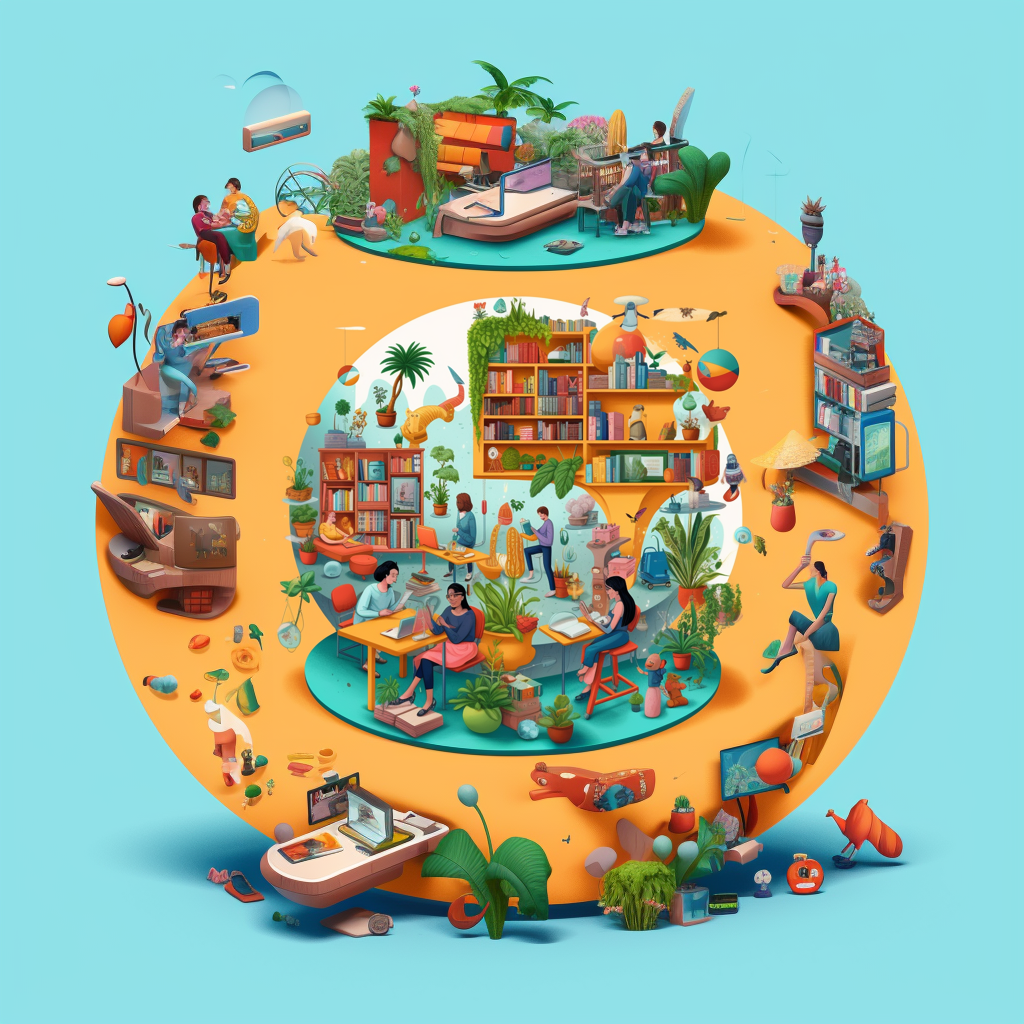As we move through life, every interaction – be it with people or objects – turns out to be a lesson in complexity that helps us move forward. Seemingly trivial objects or sudden obstacles are not mere obstacles or static; they are active participants in the game of life that can either derail us or propel us forward. It is the intricate balance between our perceptions and our intentions that constitutes our lived reality, where obstacles transform into opportunities and provocations become moments of joy.
In this great game of pursuit and realization, true satisfaction is not just about checking off boxes or achieving predetermined goals. The fleeting thrill of reaching a milestone is quickly overshadowed by the temptation to chase the next, keeping us in a constant loop of striving.
We can change our perception of the world by reframing our goals, which opens up new possibilities and insights. This flexibility empowers us and gives us autonomy, but it also highlights the need to anchor ourselves in a purposeful framework. The emotions that are triggered by a meaningful activity balance out the imponderables and uncertainties.
Setting high goals in life not only means giving it structure, but also intensifying our emotional experiences. Striving for meaningful goals brings deep satisfaction and fulfillment as we make progress. In contrast, aimlessness can lead to a deep emptiness, aimlessness and suffering. To avoid this existential emptiness, we must accept the challenges inherent in life and set goals that give meaning to our existence.

Amid life's inevitable challenges, our endeavor is to engage in endeavors that transcend personal struggles. By aligning ourselves with enduring goals that can withstand life's volatility, we navigate through challenges with resilience and determination. Despite the inevitable failure and unpredictability that economic activity represents, the pursuit of meaningful goals acts as a beacon that provides strength and support in these situations.
Through this playful lens we see not just goals but games; not just challenges, but opportunities for enrichment. Therein lies the true magic of gamification - not in collecting points or badges, but in the search for joy and meaning in the game itself, guided by a story that unfolds uniquely for each player, shaped by their decisions and their interactions. This perspective enriches our approach to the complexities of life, transforming the everyday into the extraordinary and the ordinary into opportunities for growth and joy.
On our journey we encounter various stimuli that shape our experiences and interactions. These encounters go beyond mere objects and often involve complicated individuals, each with their own complexity. Even inanimate objects such as tools or obstacles are not static structures, but dynamic elements that can either support or hinder us on our way to a goal. Our perception of the world is in constant flux and is influenced by how these elements align with our goals - challenges transform into opportunities for growth while supporting elements generate positive feelings.
It is important to recognize (the research around dopamine & Co shows us this) that satisfaction does not simply result from achieving certain goals. The fleeting feeling of satisfaction after reaching a milestone is quickly replaced by the urge to set new goals.
Contrary to popular belief, dopamine, for example, acts as a motivator to take action in the first place. This is especially true if you are convinced that you have a task in front of you that is worth pursuing.
The trend towards designing activities that are primarily characterized by small, quick ‘victories’ caricatures exactly this behavior. We humans repeatedly show (in games, sports and hobbies) a special affinity for tasks in which we are allowed to conquer complexity and not to try to prevent it with small, quick tasks that are easy to solve.
This applies both to further training and to commitment to activities or products.
That's why the gamification industry has taken a fatal path, largely contributing to the trend of transforming people's situations into small, quick and rewarding entities.
I have been encountering this trend for more than a decade and working against it with education and project advice. Experience shows that this is true and precisely in order to respond to this trend communicatively, we have given this school of thought behind gamification a name: non-Skinnerian gamification.
If you would like to have a small mini-email series in your inbox for a few days, just click here..


